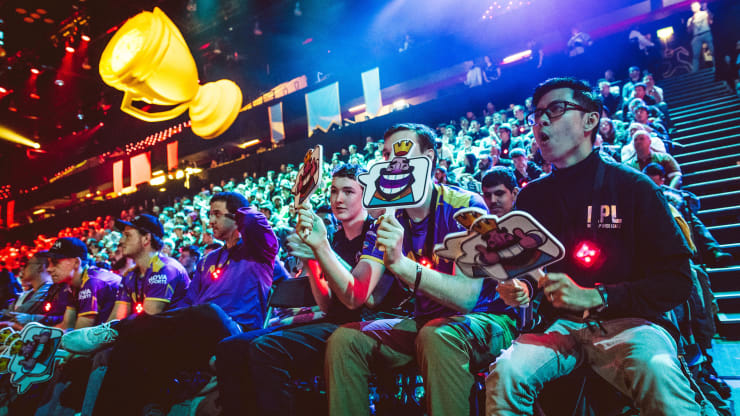 Source: Unsplash
Source: Unsplash
Much like many industries which are capable of generating sizeable revenues, eSports has managed to solidify itself a central player in the contemporary gaming world through consistency and planning. However, this is not the only way that various countries have been able to develop from a competitive gaming standpoint. So, let’s take a look at the importance of eSports growth to several different countries.
Importance of Support and Long-Term Thinking

Fundamentally, the manner in which various countries have gone about developing their role and status within the sector showcases the undeniable benefits of having a well-thought-out, long-term strategy. In recent times, many nations have been able to establish themselves within the competitive gaming scene, but such progress didn’t happen by chance.
For example, despite Sweden’s small population, the Northern European country have become a highly successful competitive gaming outfit. In total, the fifth-largest county in Europe have amassed approximately £30 million in prize money from their 2462 players, according to Esports Earnings. Crucially, professionalism and participation encouragement has been at the heart of Sweden’s growth, with local players working to a code of conduct. Moreover, the success has resulted in the opening of eSports schools, highlighting the country’s desire to promote competitive gaming longevity.
Furthermore, it’s a testament to Sweden’s focus on their competitive gaming industry that, along with Denmark, they lead the way regarding eSports consumption in Europe, as per a report by IBC. In turn, this has seen the country become a go-to destination for popular gaming events, including those hosted by DreamHack, such as the Masters Stockholm.
Pivotal to Enhancing Broader Gaming Sectors
Additionally, over the last few years, the attraction of eSports has enabled for a wide array of countries to explore the untapped potentials of their pre-existing gaming industries. Although it has been unstructured in its approach, India, perhaps more than most, has seen its gaming sector rise following its acceptance of the market’s capabilities. Instead of adopting an approach which targets long-term progression, eSports organisations throughout the South Asian country instead catered to the traditional interests of prospective gamers, like sports, in seeking to engage millennials.

Crucially, the release of PUBG Mobile proved to the catalyst in predictions that would see Indian eSports reach revenues of over £880 million by 2020. Since being made available, PlayerUnknown’s Battlegrounds has significantly boosted the South Asian country’s mobile gaming market. Moreover, it has also been central to game-related expansions, with Fnatic, the most successful eSports brand of the last decade, planning to develop a gaming facility within India.
As a result, these developments have altered the perception of India among those within the gaming world. Within modern-day society, many now believe that they are set to be the next frontier for gaming giants. Furthermore, the new-found popularity of gaming in India has since enabled the country to grow its online casino industry. Recently, online casinos have taken India by storm, despite being relatively unexplored. Because of this, there are now a whole host of different operators available, such as those listed at CasinoWings, which offer traditional casino games, including baccarat, blackjack, and roulette, in addition to real-money alternatives and sign-up bonuses.
eSports Have Had an Unexpected Impact
Ultimately, there can be no doubts that eSports have been at the very heart of flourishing gaming industries across a wide array of different countries. While India and Sweden have utilised various strategies to grow their respective markets, each have enjoyed unprecedented success that has since been able to get the best out of further aspects of their game-centered industries.




